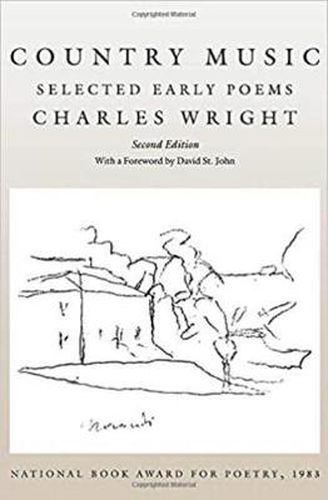Readings Newsletter
Become a Readings Member to make your shopping experience even easier.
Sign in or sign up for free!
You’re not far away from qualifying for FREE standard shipping within Australia
You’ve qualified for FREE standard shipping within Australia
The cart is loading…






Co-winner of the 1983 National Book Award for Poetry, Country Music is comprised of eighty-eight poems selected from Charles Wright’s first four books published between 1970 and 1977. From his first book, The Grave of the Right Hand, to the extraordinary China Trace, this selection of early works represents Charles Wright’s grand passions: his desire to reclaim and redeem a personal past, to make a reckoning with his present, and to conjure the terms by which we might face the future, writes David St. John in the forward. These poems, powerful and moving in their own right, lend richness and insight to Wright’s recently collected later works.
In Country Music we see the same explosive imagery, the same dismantled and concentric (or parallel) narratives, the same resolutely spiritual concerns that have become so familiar to us in Wright’s more recent poetry, writes St. John.
$9.00 standard shipping within Australia
FREE standard shipping within Australia for orders over $100.00
Express & International shipping calculated at checkout
Co-winner of the 1983 National Book Award for Poetry, Country Music is comprised of eighty-eight poems selected from Charles Wright’s first four books published between 1970 and 1977. From his first book, The Grave of the Right Hand, to the extraordinary China Trace, this selection of early works represents Charles Wright’s grand passions: his desire to reclaim and redeem a personal past, to make a reckoning with his present, and to conjure the terms by which we might face the future, writes David St. John in the forward. These poems, powerful and moving in their own right, lend richness and insight to Wright’s recently collected later works.
In Country Music we see the same explosive imagery, the same dismantled and concentric (or parallel) narratives, the same resolutely spiritual concerns that have become so familiar to us in Wright’s more recent poetry, writes St. John.